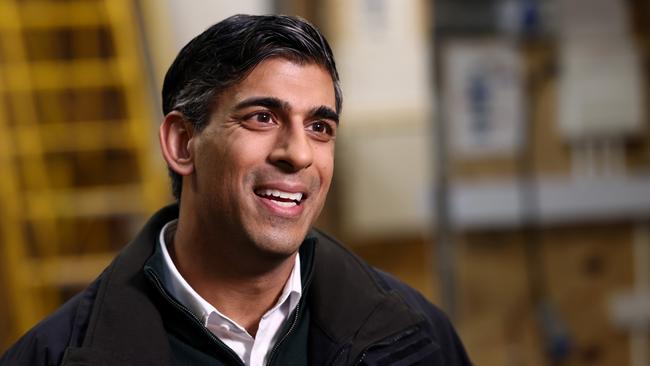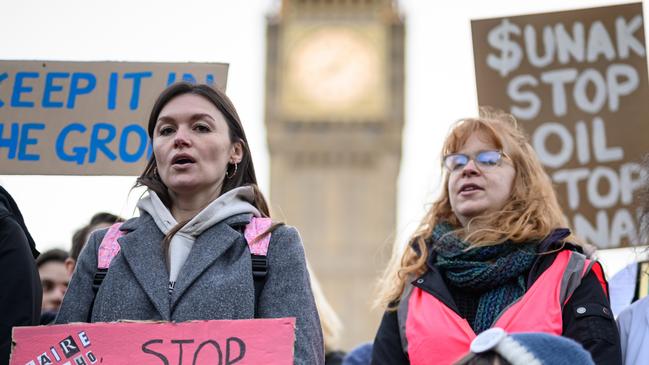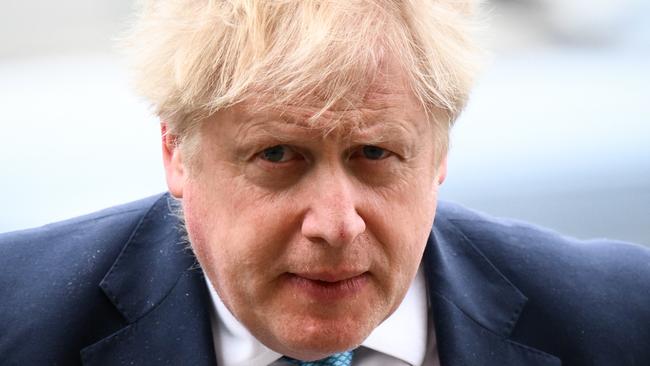Time is running out for UK’s prime minister Rishi Sunak
For 14 years, the Conservative Party has led the UK government. But that may be about to change.
World
Don't miss out on the headlines from World. Followed categories will be added to My News.
If Rishi Sunak’s political dreams were made when he become the United Kingdom’s prime minister, what must he be thinking now?
In the turbulent 15 months since entering Downing St, Mr Sunak has seen a brief rise in the opinion polls dissipate to where he was when he started.
Those polls show his Conservative Party could be decimated in an election due by the end of the year, with as many as 11 ministers tipped to lose their seats, including the finance minister.
And the problems don’t end there.
The issues that threaten to destroy Mr Sunak and his conservative cabinet colleagues are familiar the world over — the cost of living crisis, and healthcare among them.

But it’s issue of illegal migration and how to stop the flow of illegal migrants across the English Channel in small boats that has become a lightening rod of discontent, both with voters and within the government.
Under a five-year agreement, some UK-bound asylum seekers would be sent to Rwanda, to have their claims processed, in a policy akin to Australia’s offshore detention program.
After fierce debate and rebellion by some MPs, Mr Sunak managed to get a bill through the House of Commons that would make clear in UK law that Rwanda was a safe country to send asylum seekers.
However, the polls and factional disputes, as they stand, mean Mr Sunak may fall victim to another Australian political export — the ever revolving leadership door.
He is already the third PM since the 2019 election and the fifth since 2016 but leadership speculation refuses to go away and could rear its head before any scheduled election.

Ex-minister Sir Simon Clarke has called for Mr Sunak to quit and stirred anger among supporters who accuse him of making the situation worse.
“No one likes the guy who’s shouting ‘iceberg’ but I suspect that people will be even less happy if we hit the iceberg. And we are on course to do that,” he told the BBC.
Professor of Politics at Queen Mary University of London, Tim Bale, said changing leaders so frequently was not likely to go down well with voters.
“There’s no obvious alternative on the Tory benches … [and] changing leaders again risks making them look like a laughing stock,” Prof Bale said.
Business Secretary Kemi Badenoch has impressed many by being a straight shooter on contentious issues and in recent days senior party figures have suggested she should replace Mr Sunak to give the party a fighting chance.
Prof Bale said Ms Badenoch was the most likely choice as she was a “culture warrior and Thatcherite”.

“Persuading voters that the economy has turned a corner and the NHS (publicly-funded National Health Service) can be prevented from crumbling further – at the same time as showing he’s in charge of his party,” Prof Bale said were the challenges ahead.
He said people were “just fed up”.
“The Conservatives have been in power for fourteen years, more than enough time to get things right but the economy is bumping along the bottom, the NHS is in crisis, immigration is still high, and Brexit isn’t delivering the promised benefits.”
Improving the economy, reducing waiting lists and stopping the boats were all things Mr Sunak needed to do to save his job.
If that happens, the factions tearing the party apart might quieten down.
“That depends on whether they can see signs that the party is still in with a chance: if the polls narrow they might agree to disagree for the duration of the campaign; if not, they’ll be fighting like cats in a sack … partly in order to try and come out on top post-election,” Prof Bale said.

The i Paper political editor Hugo Gye said there was a “sense of fatigue” about the government “even though Sunak himself personally is a relatively fresh face”.
The government was under pressure to do something about the state of public services and ending disruptive strikes.
“The fact is the Conservatives have been in power for 14 years so pretty much anything that goes wrong gets blamed on them, and it’s very hard for them to shift that blame,” he said.
Gye said a leadership spill was unlikely, but not completely out of the question.
“It has been noticed that our politics has become a bit more Australian and a bit more Italian over the past few years … because the Conservatives have changed leader twice since the last election. None of those changes of leader have worked in the sense of improving the party’s position.”
Time was not on Mr Sunak’s side, and he would need “everything to go right” before an election is held.
“He needs his own party to be united and disciplined in a way that hasn’t been for at least two years, since the problems that emerged with Boris Johnson’s leadership – the Conservatives are extremely divided. And finally he needs Labour to make serious mistakes,” Gye said.
He noted the Labour leader, Sir Keir Starmer, had never fought an election as leader and might stumble at the last minute.
“It’s possible that Kier Starmer will prove to be a poor campaigner when it gets when you get down to the sharp end. But really, you would think Rishi Sunak will need all of those things,” Gye said.
More Coverage
Originally published as Time is running out for UK’s prime minister Rishi Sunak





